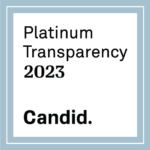Welcome to our explainer series, taking important topics and going deeper!
What is Community Solar?
Also called solar farms, roofless solar, or shared solar, community solar projects are large, central solar arrays that generate electricity. They provide benefits of solar to those who are not able to install rooftop solar, because, for example, they are renters, have too much shade, or are unable to afford the cost. Each subscriber receives billing credits for sections of a larger solar array.
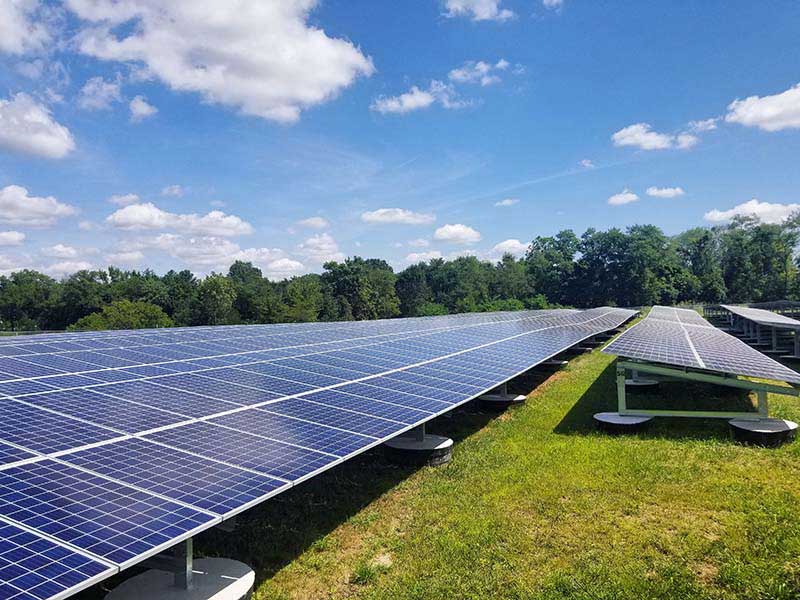
What are the benefits?
First, it expands access to solar energy. Installing rooftop solar is not always an option for everyone. If you don’t have the ability or the funds to install solar on your property, you can realize savings on your electricity bill by subscribing to a community solar project and supporting clean energy.
Community Solar supports local clean energy development without encroaching on preserved or protected land. It encourages the positive development of otherwise underutilized areas, such as brownfields, landfills, and impervious surfaces. According to the EPA, a brownfield is a “property where expansion, redevelopment or reuse may be complicated by the presence or potential presence of a hazardous substance, pollutant or contaminant.”1 There are more than 450,000 brownfields in the US, and redeveloping them into solar farms can take the benefits of Community Solar and combine them with benefits like using existing infrastructure, not developing green space and working lands, and protecting the environment. Using a brownfield as a solar site actually turns it into a brightfield, which is lovely.2
Community Solar fosters desperately needed clean energy growth and local jobs. In December 2023, the NJ BPU announced that its Community Solar Energy Program (CSEP) received over 300 applications with new CSEP projects totaling more than 300 megawatts of solar capacity, 129 of which are in the utility territory that serves Princeton – PSE&G. Reducing dependence on fossil fuels is one of the best ways to decrease greenhouse gas emissions; solar technology is ready and available!
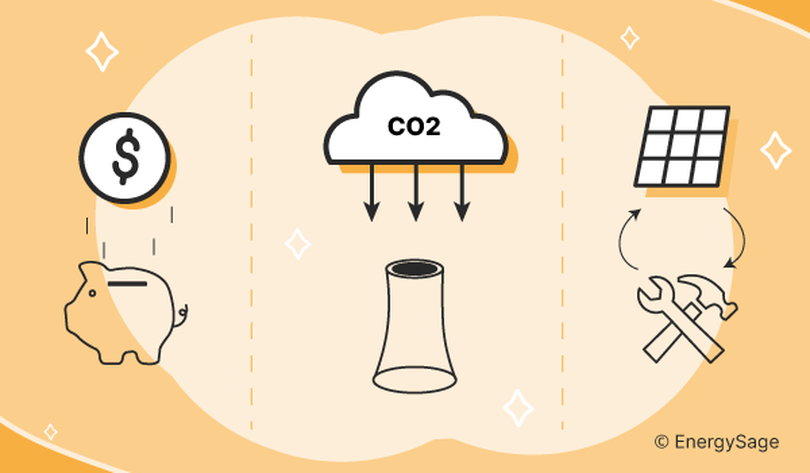
What is the Community Solar Energy Program (CSEP)?
Pursuant to the Clean Energy Act of 2018 (L. 2018, c.17) and the Solar Act of 2021 (L. 2021, c. 169), the New Jersey Board of Public Utilities (NJBPU) has established a new permanent Community Solar Energy Program (CSEP). This program requires all community solar projects to provide utility bill savings of at least 15% and will apply for the subscription duration. It also requires that 51% of all installed CSEP projects serve low- and moderate-income households.
How does it work?
- The NJ BPU approves a community solar project application.
- The community solar array is installed in a suitable location (brownfield, landfill, warehouse rooftop).
- You sign up for the community solar project with a certain subscription percentage and pay a monthly fee to the community solar developer or subscriber organization.
- As the community solar array generates electricity, the generator’s meter will register the production each month.
- The electricity generated is distributed to the community solar project’s subscribers.
- After the community solar generator account is billed, the production usage (in kWh) is distributed to the customers based on their subscriber percentage.
- The allocated kWh is included on the customer’s bill as a Community Solar Credit for Delivery and Supply.
- The monthly subscription fee paid to the community solar developer, and the bill credit received on your monthly utility bill net to the percentage of savings guaranteed in your subscription agreement annually.
Note: When you subscribe to a community solar project, your electricity does not come directly from the solar farm. Your savings will come from applying the credits from the solar farm to your regular utility bill.
Who are the parties involved?
The three main parties3 involved in a Community Solar project are:
Subscriber
A subscriber can be a home or business that wants to use renewable energy but does not have an array on site because they are a renter or their site is not optimal for an on-site solar system. A subscriber pays a monthly subscription for a share of the project’s solar power generation. Every project will have its own fees and contract. Before signing up, read the agreement and understand its terms and conditions.
Project developer
The solar developer will be responsible for the solar array’s application, building, and maintenance. The developer may partner with a registered subscriber organization to sign up subscribers. A subscriber organization is the entity that conducts subscriber acquisition and subscriber management for community solar projects.
Site host
A site host has available space, such as a warehouse rooftop or a landfill site, that is well-positioned to capture solar energy. The site may never have had a solar array, or it may have an additional area available adjacent to an existing array. A site host can partner with a developer and rent or sell the site used for the solar project.
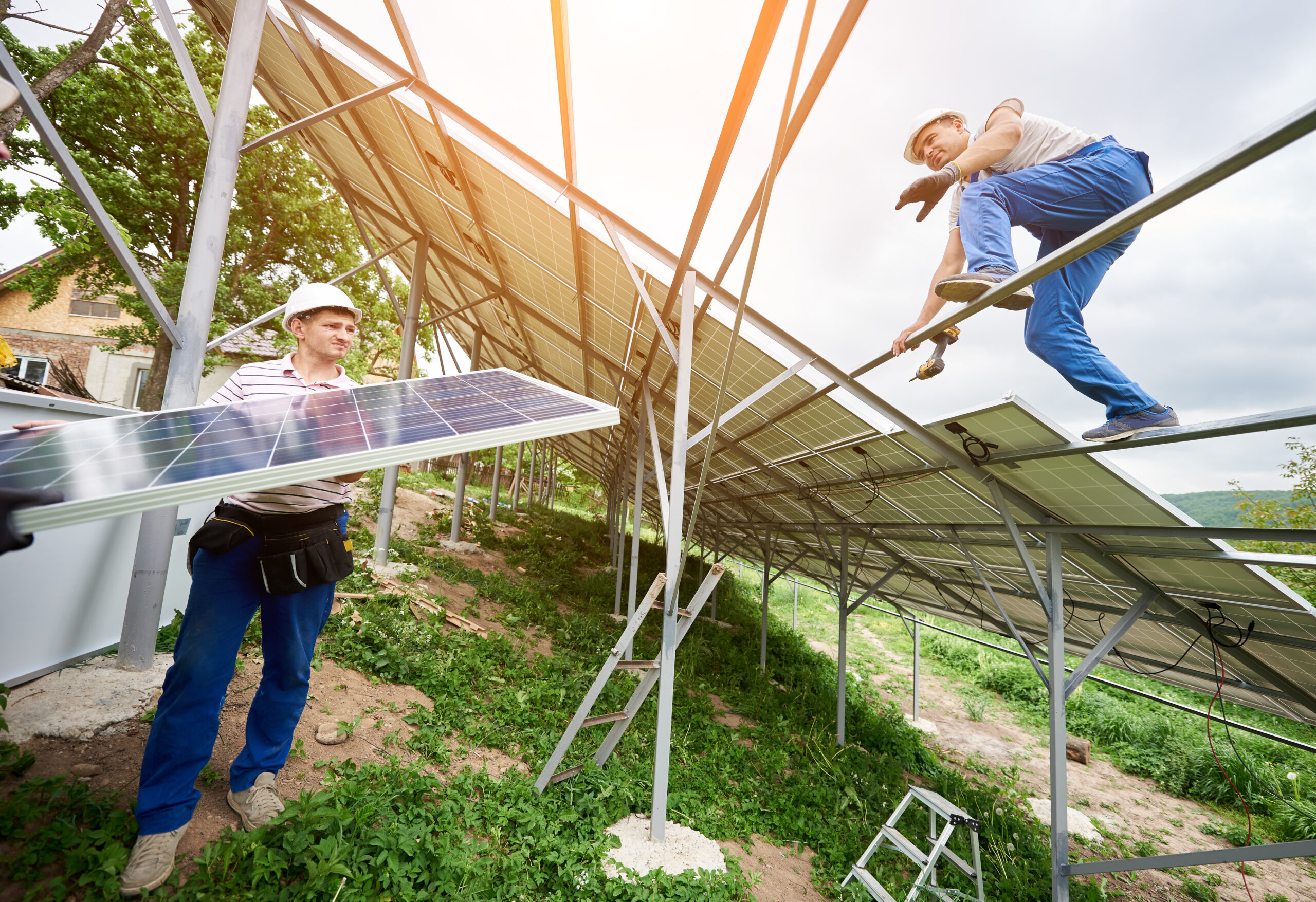
What can you do?
Subscribe! The first step is to find a project using NJ CEP and Sustainable Jersey’s Community Solar Project Finder. Enter your zip code and compare the eligibility requirements, savings, and contract terms. Sustainable Princeton has a Community Solar Tip Sheet where you can write all this information down if it is easier to compare that way. Select the website link to the project you want to join and complete the application. If there is room, the subscriber organization will let you know you have a spot, but if there is no room, you will be put on a waiting list. When you are a subscriber, your utility bills will be slightly different.
Your utility bill with Community Solar
If you are subscribed to a Community Solar project now, you will receive two bills. One is from the Community Solar Subscriber organization, and one is from your current utility. Watch this video for an explanation of how this works. Starting in January 2024, your community solar subscription fee and bill credit will be consolidated into your electricity bill.
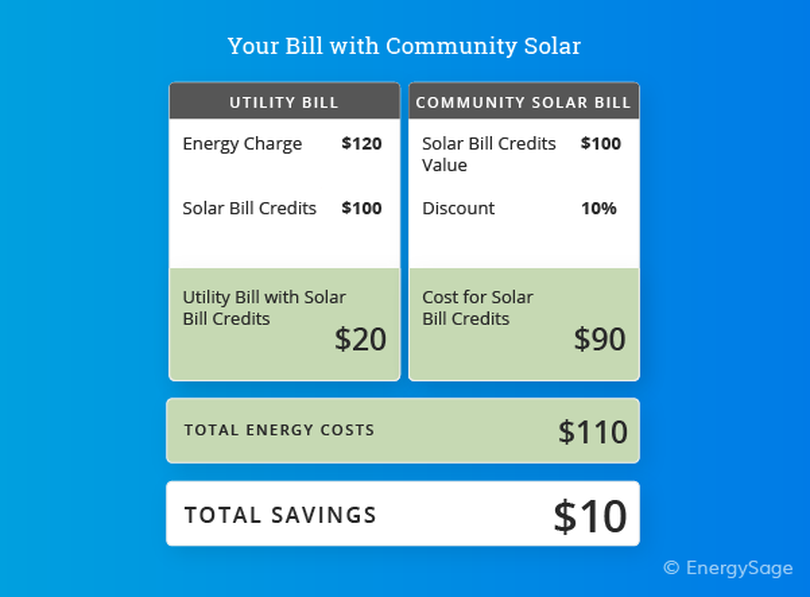
What about rooftop solar?
If you can install rooftop solar, there are many more benefits! These include the potential to make money, be eligible for rebates and incentives, increase your home value, increase resiliency, and greater environmental benefits as more renewable energy will be contributed to the grid. Find out more about rooftop solar here!
Want to learn more?
Attend our Sustainable Home Expo and ask questions at the Community Solar Educational Session on March 9th at 12 PM. New Jersey Clean Energy Program, the Community Solar Project Finder developer, will also be there to answer any questions you might have. You can also visit our webite and download the Community Solar Fact and Tip Sheets.
We will be sharing our explainers every month. If there are topics you’d like to know more about, please email info@sustainableprinceton.org.


